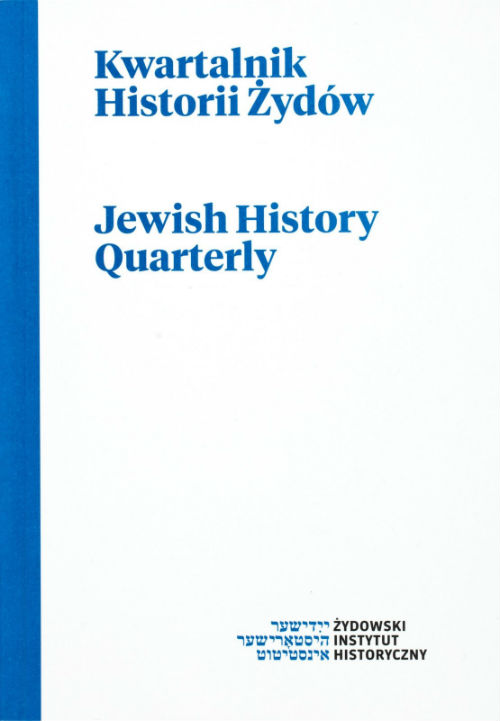Żydowska przestępczość kryminalna w Wojsku Polskim w województwie lubelskim w latach 1918-1939
Jewish Crime in Polish Army in Lublin Voivodship 1918-1939
Author(s): Mateusz RodakSubject(s): History
Published by: Żydowski Instytut Historyczny
Keywords: Polish Army; conscription; crime; desertion; Jews
Summary/Abstract: The establishment of the Polish armed forces in 1918 was one of the essential building blocks of the regained statehood. All male citizens, regardless of ethnicity, were to serve in the Polish Army. For part of the members of the minorities this duty translated at best into six months of accelerated Polonization. A great majority of non-Poles fulfilled that duty, if reluctantly, and did the compulsory army service. However, a significant proportion of members of the German, Lithuanian or Jewish communities were consistently trying to avoid draft. This article is an attempt to analyse the question of Jewish crime in the Polish Armed Forces. “Jewish crime” denotes in this instance at least two groups of issues. One is the question of draft dodging by the Jews and in many cases desertion. The second group of issues, concerns the provision of unlawful aid, typically by persons of Jewish ethnicity, to men who wanted to avoid conscription or desert. An analysis of these problems is limited to the territory of the pre–WWII Lublin voivodship, where the Jews accounted for approximately 30% of the population. The problems raised in the article became significant due to the specific situation in which ethnic Jews happened to operate in pre-WWII Poland. At that time, Jews accounted for 15% of all the persons sentenced for the offences dealt with in the article. The ratio of Jews failing to report for conscription was 8% and was three times as high as the corresponding index for Poles (figures for 1927). The statistics that were unfavourable for the Jews served as a pretext for anti-Semitic writers for proclaiming them as proof of disloyalty and hostile anti-state actions of which they accused the Jews all the time. At the same time they often argued that Jewish recruits and subsequently soldiers, were unfit for frontline duty. Military reports were written in a similar vein, with explicit mentions of a very poor physical condition of the Jewish soldiers. Polish people condemned the behaviour of Jewish recruits evading evaded draft, while on the other side the Jews were denied the right to serve in the armed forces. This mixed assessment was one of the reasons why the Jews chose to escape army service. But it was not the only reason. The question of the need to curtail religious practices appears no less important. Another important factor was the attitude of other soldiers to the Jews, which may be termed as ambivalent. Many potential Jewish privates may have also been scared of enforced Polonization. The author presents in detail the various ruses used by young Jews in Lublin region to achieve a deferment or waiving of conscription. These included self-inflicted wounds, bribing of commission members or escaping abroad. At the same time, the author seeks to present the milieu of “professional” providers of assistance, who, using their connections, fraud or smuggling, were helping those Jews who did not want to go the army to avoid conscription.
Journal: Kwartalnik Historii Żydów
- Issue Year: 243/2012
- Issue No: 03
- Page Range: 360-379
- Page Count: 20
- Language: Polish

